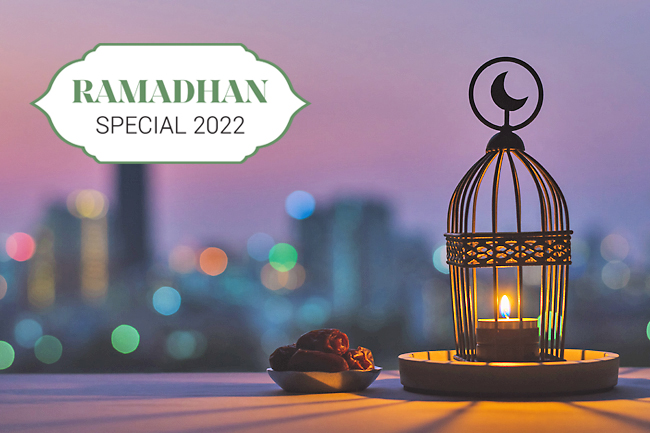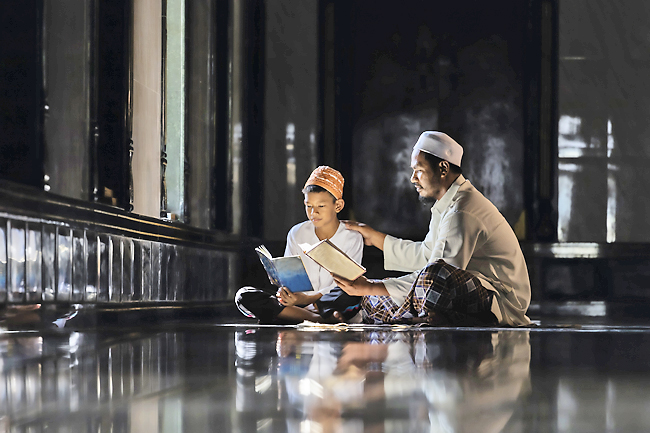Aqilah Rahman
Ramadhan, the ninth month of the Islamic calendar, is considered the holiest month among Muslims. Every religious activity and good deed during this period is blessed with greatly multiplied rewards as billions of Muslims fast across the globe.
Every day throughout the month of Ramadhan, Muslims abstain for eating and drinking from dawn to sunset. Muslims also refrain from negative emotions such as anger and jealousy, as well bad habits such as smoking, swearing, gossiping, arguing or complaining.
All in all, Muslims fast as an act of worship and to be closer to Allah the Almighty while learning the virtues of patience. Depending on the country, the fasting hours varies anywhere between 11 hours to 20 hours. In Brunei Darussalam, the duration of the fast is between 13 to 14 hours.
Fasting during Ramadhan is mandatory for Muslims except for certain groups including children, the elderly, pregnant or breastfeeding women and medically unfit individuals. Those who have medical conditions such as diabetes are advised to consult a doctor and assess the level of risk if they wish to fast.
SUNNAT TARAWIH PRAYERS AND LAILATUL QADAR
Aside from fasting during the day, Muslims are encouraged to engage in religious activities.
Among them is terawih, a type of prayer performed every night of Ramadhan after the Isyak prayer.
Unlike the five daily prayers which range from two to five raka’at, Sunnat Tarawih prayers can be up to 20 raka’at in total, lasting about an hour. Muslims typically pray together at mosques for Sunnat Tarawih prayers but it can also be carried out at home.


With the emphasis on performing spiritual deeds during Ramadhan, Muslims can benefit from the night of Lailatul Qadar, observed during the last ten days of Ramadhan. Lailatul Qadar is considered the holiest night of the Islamic year.
According to Al-Quran, Lailatul Qadar is better than 1,000 months, which means any good deed performed during the night of Lailatul Qadar is equivalent to doing a good deed for roughly 83 years.
Lailatul Qadar is also the night where Muslims are blessed and forgiven as they pray and sincerely repent for their sins. For this reason, Muslims are encouraged to spend the last 10 days of Ramadhan with spiritual activities such as prayers, Zikir and reciting Al-Quran.
MULTIPLIED REWARDS FOR GOOD DEEDS
In addition to spiritual activities, some Muslims participate in doing good deeds such as donating to charity and doing volunteer work during Ramadhan. Rewards for such deeds are multiplied during the holy month and serves as a reminder to not only do good during Ramadhan but also all year round.
Donation campaigns are frequently held in the country during Ramadhan. The public can reach out to various parties and organisations to lend a helping hand and help lighten the burden of others during this holy month.
STAY SAFE AND HEALTHY
Given that Muslims abstain from any food and drinks during Ramadhan, some people may feel sleepy or tired especially at the end of the day to break fast.
The public is reminded to be cautious when driving home for sungkai and to stay within the speed limit. Plan the day ahead to avoid rush hour and practice social distancing when picking up orders or opt for food delivery to minimise contact.
If you’re running an errand in the afternoon, plan your schedule to avoid rush hour before sungkai. Use an app to check traffic so you know which routes to avoid. Bring a bottle of water and some dates as a backup in case you can’t make it home on time. Most of all, drive safely and be mindful of others on the road.
In addition to staying safe on the road, the public should also practice social distancing at all times and adhere to the Ministry of Health guidelines to minimise the risk of COVID-19 infections.
To stay energised throughout the day, it is recommended to eat sahur – a meal taken before the Subuh prayer. Having sahur isn’t mandatory but it helps to reduce hunger pangs and provide energy. At sungkai, keep your portion size reasonable and avoid overeating or wasting food. The World Health Organization (WHO) recommends at least 10 glasses of water every day to stay hydrated during Ramadhan.








